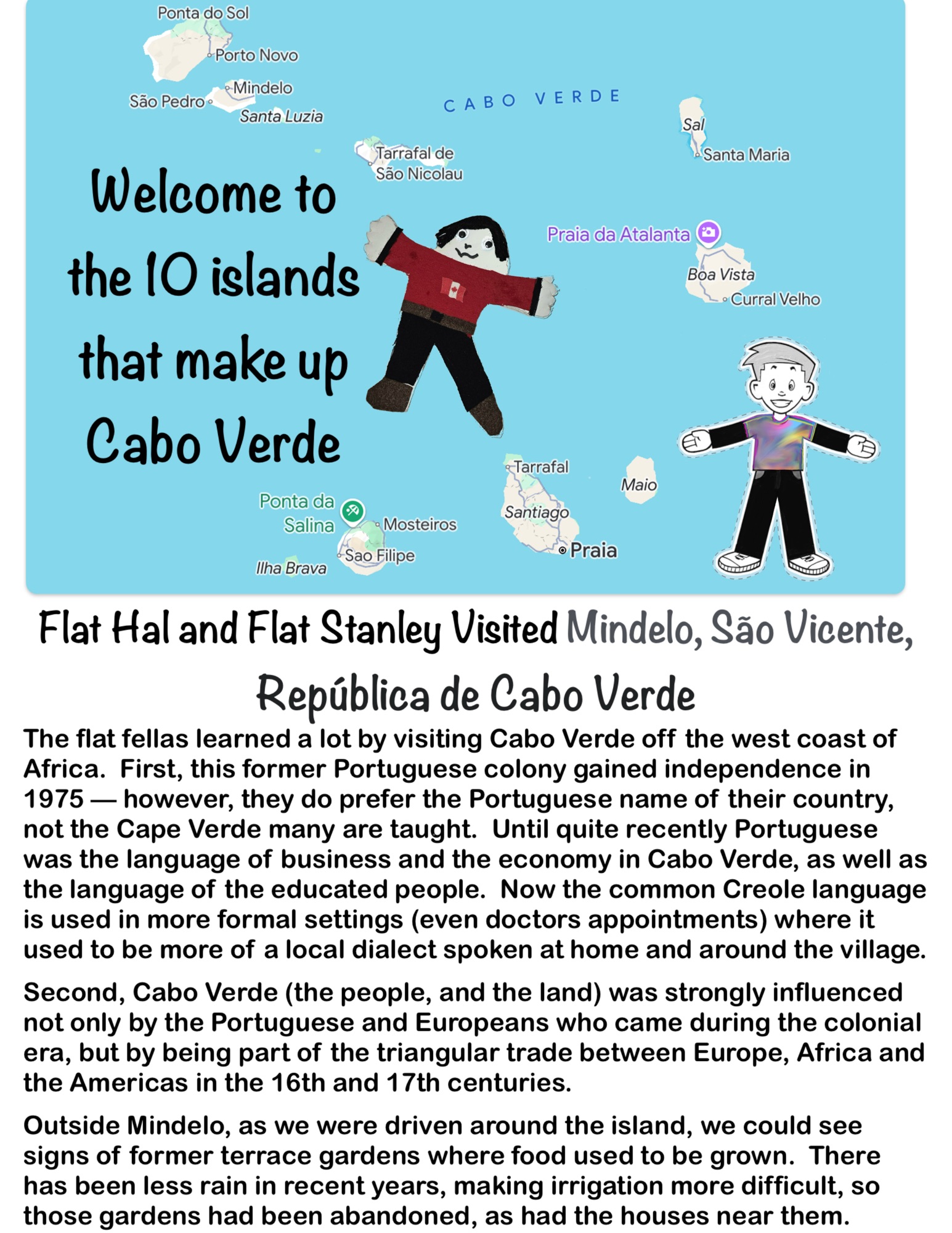#flatstanley #flathal #caboverde #africa
The flat fellas learned a lot by visiting Cabo Verde off the west coast of Africa. First, this former Portuguese colony gained independence in 1975 — however, they do prefer the Portuguese name of their country, not the Cape Verde many are taught. Until quite recently Portuguese was the language of business and the economy in Cabo Verde, as well as the language of the educated people. Now the common Creole language is used in more formal settings (even doctors appointments) where it used to be more of a local dialect spoken at home and around the village.
Second, Cabo Verde (the people, and the land) was strongly influenced not only by the Portuguese and Europeans who came during the colonial era, but by being part of the triangular trade between Europe, Africa and the Americas in the 16th and 17th centuries.
Outside Mindelo, as we were driven around the island, we could see signs of former terrace gardens where food used to be grown. There has been less rain in recent years, making irrigation more difficult, so those gardens had been abandoned, as had the houses near them.

Calçadas… Hand Cut Stones Placed By Hand Pave This Road

Cobblestone: Uses naturally rounded, uneven stones -> results in a very bumpy ride.
Calçada: Uses cut, flat-topped, smaller stones fitted tightly, often in patterns -> results in a relatively flat, decorative, and more walkable surface.

Have you ever seen a Calçada or Cobblestone road? Is there one in your community? Flat Hal checked, and we don’t think there are any cobblestone roads in Texas!



